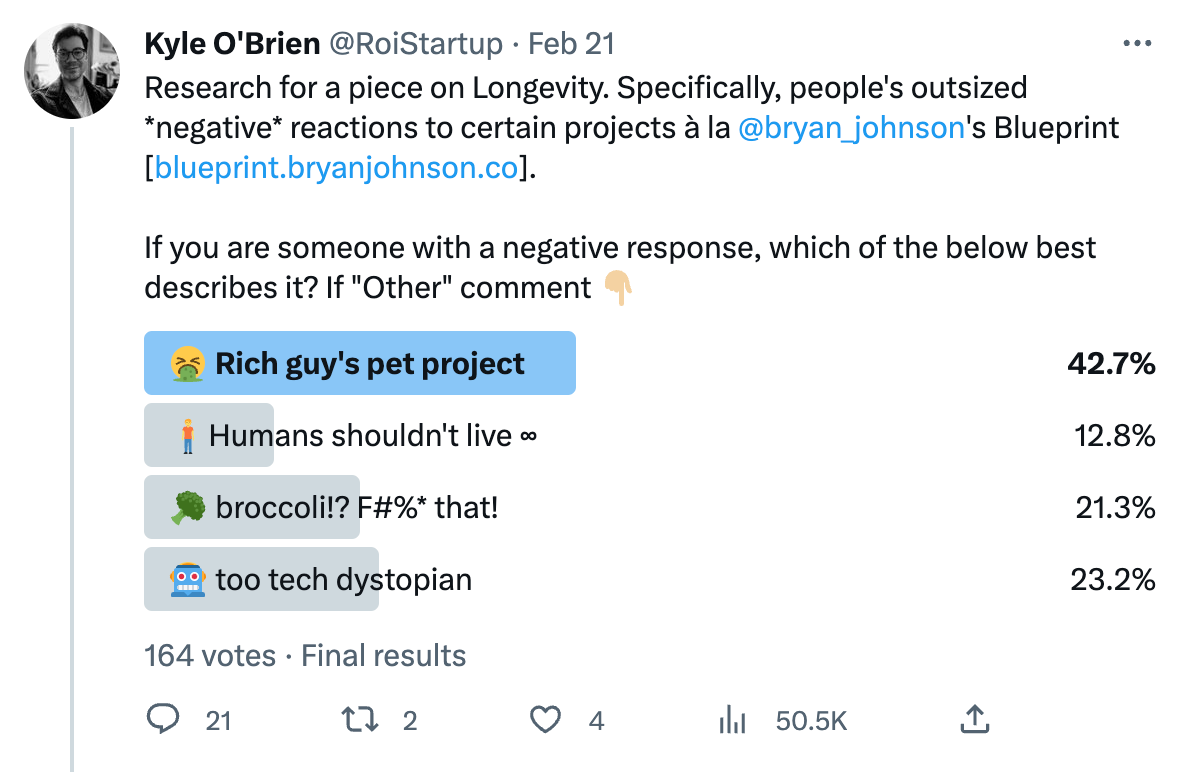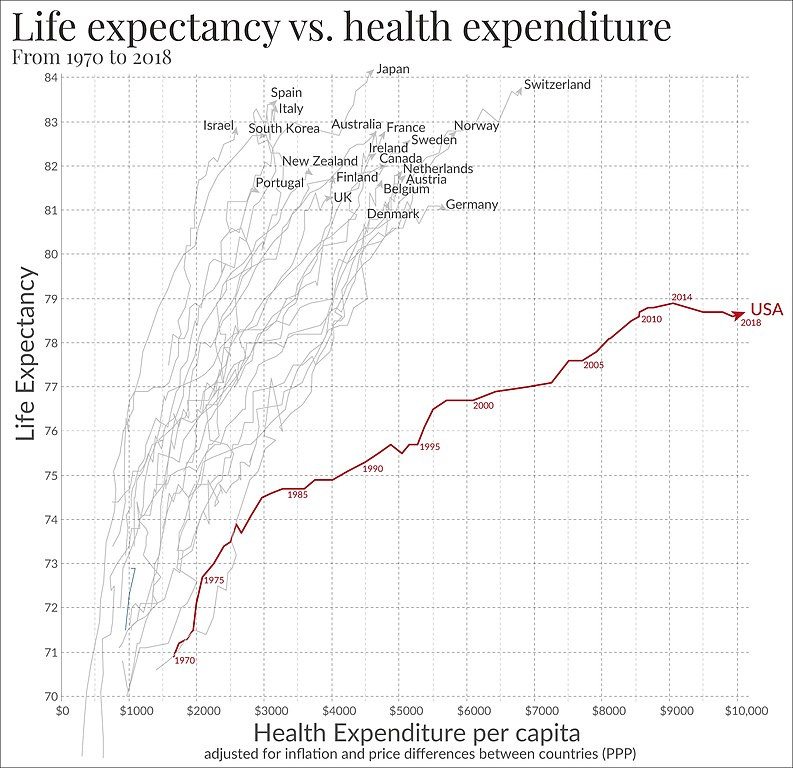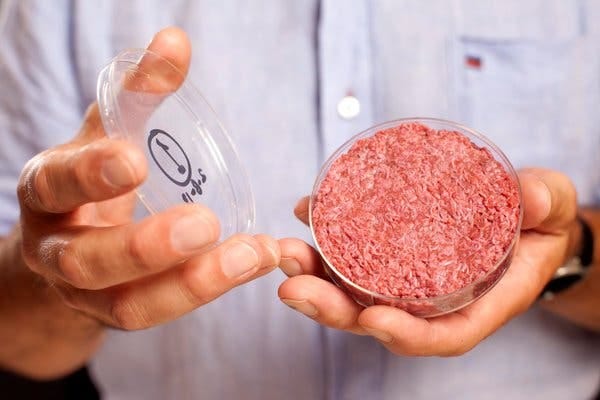Welcome to
! I’m Kyle O'Brien, an early stage deep tech investor — alongside — and community builder based in Paris, France. I write what I see. These days, it’s mostly explorations into various categories of interest including:The Future of Computing
Blockchain Infrastructure (Privacy & Encryption)
Frontier Health
I enjoy taking complex topics and reducing them into accessible articles and top-notch memes. I also throw bangin’ dinner parties for cool people in tech and venture.
Step into my office…
Health is Wealth
You’ve heard the expression. But do you really take it to heart? We’re bombarded daily with content encouraging us to go vegan, fast intermittently, reach our 10,000 step goal, eat only raw protein, eat no protein… Diet and exercise, despite being perhaps the two most crucial and controllable levers we have over our health remain mysterious, even pseudoscientific, for many.
Our knowledge of the microbiome, pharmacology, genetics, athletic training regimens etc. have advanced tremendously in the past few decades. We track our food intake, fitness and glucose levels with apps and devices in hopes of capturing the “quantified self.” At the end of the day, it’s an imperfect system modeling a highly complex organism (you).
The people doing the science uncover more and more every day that is helping to shape our understanding of aging, cellular decline, DNA deterioration and organ function. The people selling the science are doing their best to convince you there’s a miracle cure in the form of a pill, device or subscription. There is a grain of truth to these science-backed “magic pill” products — but the marketing schemes tend to leave out the full picture.

The conventional wisdom of a healthy diet, solid exercise regimen, good sleep habits and minimal toxins (alcohol, cigarettes, drug use etc.) is probably the best approximation we have. Though the model leaves out some crucial information, it’s a good rule of thumb for the broader population. The thing is, we’re reaching a point where the science, technology and some unbridled ambition are on the cusp of changing our model for health and aging.
And for some reason, the general public is really pissed.
Let me back up…
The sensationalist headline above from the New York Post refers to Bryan Johnson, former Founder and CEO of Braintree, a payments processing tech company that acquired Venmo and was subsequently acquired itself by Paypal for $800M. Evidently, he predominantly bootstrapped the company and managed to prevent substantial ownership dilution, leaving him with a considerable sum. So how does an exited FinTech founder turn into a frontier scientist? And why does every headline frame his mission as some pervy fool’s errand for the fountain of youth?
Like many a tech bro, Bryan was both ambitious and (at the end of his Braintree tenure) burnt out. Many people assume that a windfall of cash leads to a quiet life of luxury on some island. But for many, especially hyper-driven founder types, this is not the case. When you aren’t constrained financially and you want to work on ground-breaking research, you can think incredibly big and incredibly long-term. Bryan asked himself: what’s the biggest humanity-scale problem I can work on for the remainder of my life?
I would imagine his own floundering health played a part in his decision framework (despite the hype, “startup CEO” isn’t all it’s cracked up to be for your waistline) . What if he could work on the problem of human health, more specifically, aging? And what if he could find a way to slow, stop or reverse it? That, he thought, would change everything. In short, he’s working on a field known as longevity that’s been around for some time and is really starting to hit it’s stride.

Everyone from Whoopi Goldberg to your average Twitter troll has dunked on this guy. From my vantage point, unjustifiably so… The volume of what I would characterize as misdirected outrage is actually quite shocking. And it stems predominantly from news headlines like the one featured above. Just a year after the sale of Braintree, Bryan put $100M of his own money into starting a VC fund called OS Capital investing in AI/ML companies across multiple disciplines (including SynBio, diagnostics, & nanotechnology). Two years after that he launched Kernel, a company building hardware to measure electric and hemodynamic signals in the brain — another $100M of his own money.
It wasn’t until 2021 that he announced “Blueprint” — the primary topic today — in which he set out to maximize the reversal of his biological age through a tailored regimen (diet, exercise, sleep, supplements) that he quantifies with measurements of 70 organs. To date, he has reversed his epigenetic age by 5.1 years.
One-liners on the front page of the NY Post don’t really do him justice. The title seems to imply he’s hired a cadre of sketchy doctors to harvest black market organs in an effort to live forever. This kind of “lore” lives rent-free in the minds of many in part thanks to blood boy memes (image below) and ancient mythology. The reality is (1) the intentions clearly aren’t sinister and (2) this is a data-driven, highly experimental and forward-thinking project that has positive externalities for all of humanity. The goal isn’t to live forever and horde his wealth, but to spend it on determining how to live better, healthier and more fulfilled lives.

Before we go explore Bryan’s work (and the public reaction) further, it might be helpful to walk through the history of what is now known as “longevity research” in all of its previous iterations.
Identifying as Trans(humanist)
Immortality. A concept seemingly baked into the zeitgeist from the ancients. A trait reserved for the gods of Greece, Rome and Egypt, it came deceptively close to mankind through fountains of youth and elixirs of life. Through the ages, medicine men, magicians, pharmacists and modern scientists have studied, tested and brought to market various forms of life extending compounds (real and fake) — whether tinctures, potions or antibiotics. In some way or another, we’ve been chasing this milestone for millennia. Though we haven’t achieved the status of Zeus or Hera, we’ve done a remarkable job at extending the average human lifespan. An accomplishment we can attribute primarily to modern medicine.
As the risk of infant mortality and deadly disease has waned in the modern West, we’ve trained our attention on other areas in the health sector like prevention, optimization, and personalization. We don’t simply treat the sick, we prevent the sickness. We don’t just give any old dose to a patient, we personalize the care plan. These are all good things, and they’re improving by the day. But all this extra time (see chart above) to think about life, wellness, and purpose (instead of dying from dysentery) combined with our foray into an era of high performance computing, made us a little bit greedier. The fountain of youth appeared to be right around the corner, and some of us could sense it. By some of us, I’m primarily referring to Ray Kurzweil.
Kurzweil is a computer scientist and futurist probably best known for popularizing the term singularity — referring to the impending convergence of man and machine. To stave off death (at the time of writing this, he’s 75 years old) he worked with doctors to build a daily regimen featuring an asinine number of pills to keep his biological body running until he could plug into that sweet simulation.
I have a lot of respect for Kurzweil and fondly remember reading his book (aptly titled, The Singularity) in early High School. But if I had to guess, he is probably the figure that inspires some of the rage and vitriol we see on social media regarding “life extension.” Rich guy hires private doctors to prescribe him magic pills to live forever. It’s a simplified narrative (and I still don’t have a problem with it) but I would argue it’s antithetical to the work Bryan Johnson is putting out. Kurzweil aims to live just long enough to reach the escape hatch (the singularity); whereas Johnson is building an open-source protocol for health and longevity. Perhaps they have similar long term goals (I actually don’t know…) but the path to achieve said goals is quite different.
Kurzweil’s singularity prediction served as a foundation for a budding philosophy known as Transhumanism, quite heavily adopted in Silicon Valley among the neo-Libertarian elite. What we’re talking about today is longevity, which I think has fundamentally different roots as well as positive externalities in the short term that accrue to the broader population.
To summarize:
The Singularity is concerned with the emergence of super-intelligence;
Trans-humanism is focused on enhancing and extending human abilities through technology;
and Longevity research is focused on extending human lifespan through scientific interventions.
To come back to our original question: how does a well-intentioned project in service of global health get rekt on Twitter? I asked…
“L” is for Lightning Rod

I posted this benign survey and tagged Bryan. To my surprise, he retweeted me and it’s now probably the most viewed Tweet of my short lifespan on the platform. This is by no means a scientifically rigorous study, but it does reveal quite a bit about the aforementioned misdirected outrage. Here’s my hot take on each of the four survey choices and why the public is wrong about them.
In my view, the biggest misconception is that Bryan is some super-villain employing his immense resources to live forever at the expense of “normal folk.” I even spoke to a friend in tech recently who had just assumed it was all plastic surgery based on the headlines and cover images. The impulse to hate on the wealthy is par for the course, but much of the knee-jerk reaction is based on false information.
Then you’ve got the religious, moral or metaphysical concerns. The assumption that life has no meaning if there is no death. Fear of the unknown, blasphemous implications, all contribute to negative views of such a future. I understand the response here, but would argue it’s fairly ill-conceived and close-minded.
Another revealing fact about society is the visceral disgust with those who have some semblance of self-control and choose a path that is less conventional. This applies to drinking norms as much as it does for dietary choices. The Blueprint protocol is designed to put your physical body on auto-pilot and as such the food intake is quite strict and consistent. I tried the broccoli/lentil dish at home and I found it quite good!

The recent rally in AI developments combined with the frequent echoes of Black Mirror episodes in tech media have created an anxious populace. This is understandable. There is a lot of economic and societal uncertainty around the next decade (I wrote about it here). The Blueprint, however, is less of a step change and more of a gradual, data-driven healthcare experiment with immediate near term impact and enormous long-term potential. The average person should be more weary of AI alignment than a tech bro Benjamin Button-ing his organs.
If we look at the facts, not only is this research a net-positive on healthcare, but on the economy. In the US, as we get richer, we get sicker… The inverse of what should be the case. And it doesn’t look like healthcare policy is going to change that anytime soon. There are a few, yet notable, group of scientists who have performed self-experimentation in service of the public. I believe Bryan Johnson is a maverick just like them.
To close out, I’ll explain my line of thinking and provide three specific arguments for why this research is not only intellectually stimulating but potentially ground-breaking scientifically with ramifications across global health and society writ large:
Cost Curves
Accidental Discoveries
Minimizing Human Suffering
Have You No Mercy?
I get it. New things are scary. Novel ideas make you uncomfortable. But the impulse to shit on anyone that is pushing the boundaries is antithetical to progress. This is one thing that Silicon Valley culture definitely has right: embrace the contrarians. Sometimes it’s the wild ideas and “out there” founders that really end up moving the needle. Wild and innovative don’t necessarily count as due diligence in my world. So, I want to put forth three arguments that I think serve as a good general defense for the project. Hopefully, they also convince you that there are benefits long term for humanity. And guess what, you don’t even have to suffer through a single plate of steamed broccoli to benefit!
Cost Curves
I don’t need to explain economies of scale to my dear readers (you’re smart!). One of the main criticisms is that Bryan Johnson is pouring tons of money into this and the average person couldn’t. This is true. But it was also true for the first person to have in-home electricity, the first person to own a television set, the first batch of Ford Model-Ts. Take the human genome — $1B went into sequencing it for the first time, now you can pay $100 to 23andMe for better results in weeks. The first cell-based burger was $330K in 20213 but down $50 in 2021, a 6000x reduction in price. You get the point…
The roughly $2M investment per year for Bryan (which includes a team of ~30 doctors, lab tests, state of the art data science & biologists etc.) will not be what the everyman pays for if this one day if it becomes productized. This is the heavily engineered, costly prototype that may eventually go into mass production. So enough with the sticker shock — it’s early days.
Accidental Discoveries
After the Space Race, lots of people wondered why it made fiscal sense to put taxpayer money into a space program. Outside of nationalistic sabre rattling, most people didn’t see the point. It turns out that both the explicit science done in the ISS as well as the engineering output (resulting from the hurculean effort of getting us into space) generates tons of practical technologies that we use every day on Earth. Insulin pumps, Lasik surgery, solar panels, among other things, all came from research during the race to the moon!
The same is bound to be the case with Blueprint. There will be explicit research yielding results about aging, tissue, regeneration and much more. There will also be accidental, yet practical, findings. For instance, routine perineum stimulation led to “strong night time erections” according to Bryan (he literally measures EVERYTHING). Weirder things have happened (Viagra started out as heart medication with a rather distinct side-effect!). All in all, this research should be treated with the same visionary/long-term thinking as space exploration. Someday will achieve immortality, in the meantime you can expect little scientific “easter eggs” as a byproduct.
Minimizing Human Suffering
Let’s say that Bryan unlocks to key to age reversal or even immortality. Not everyone is going to volunteer to hop on board and no one will should be forced into doing it. But presumably, we will learn a ton of science that should prevent or treat horrible pathogens and conditions that are poorly understood today. The is the logical end point of modern medicine, is it not? I firmly believe this a noble and ambitious goal regardless of your take on longevity. Ordinary people who haven’t thought twice about “living forever” will benefit as a result of this work. At the very least, the general public should be curious and hopeful about this project; at best, incredibly supportive.
So before you go calling Bryan a Lord of the Rings-looking elf man — think twice. Or just watch this interview where the host respectfully calls him exactly that!
Thanks for reading! If you enjoyed, please subscribe and share with others who might enjoy it too. Also, check out , written by my investing partner, Rand Hindi.












